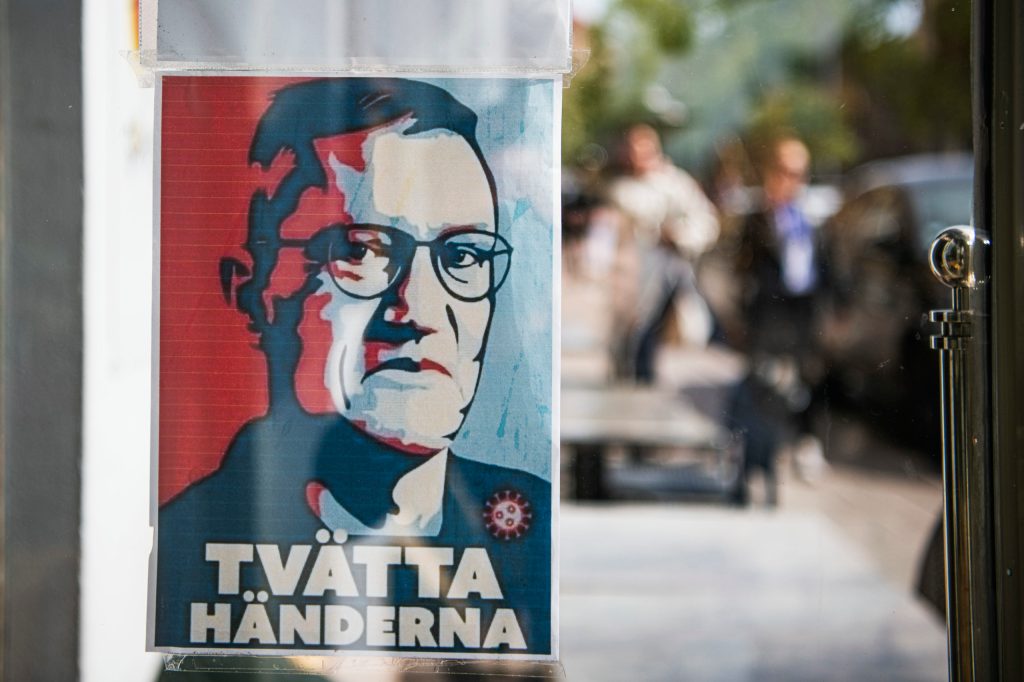Has the great Swedish mea culpa finally arrived? Anders Tegnell, Sweden’s state epidemiologist, is quoted by the Financial Times saying that his country ‘should have imposed more restrictions to avoid having such a high death toll’. His ‘admission’, continues the FT, ‘is striking as for months he has criticized other countries’ lockdowns’. The Guardian goes just as hard on the story. ‘Man Behind Sweden’s Controversial Virus Strategy Admits Mistakes,’ screams Bloomberg. But turn to Wednesday’s Swedish press and there’s something strange: they seem to have missed the scoop entirely. All the stranger, seeing that Tegnell’s remarks were made to Swedish radio. So was something lost — or, rather, added — in translation?
Tegnell’s brief remarks to Radio Ekot are here. He had intended to state the obvious: of course more should have been done this time, he says. But he said that it’s still unclear what — because we still don’t know what worked. And that was his original point. Sweden, he said, is one of the few countries that did things bit-by-bit:
‘All other countries started with a lot of things at once. The problem with that is that, then, you don’t really know which of the measures you have taken has the best effect. Maybe we know that now when you start undoing restrictions one by one. And then, maybe, we get some kind of lesson about what else — besides what we did — you could do short of total shutdown.’
The Swedish press is now running reports about the English-language reports. Tegnell has given an interview to Dagens Nyheter to clear things up. ‘I think it was spun pretty hard,’ he tells DN:
‘Sure, we would do things better next time. That is something we all have to think about. To say anything else would be strange. But then we’d also know things that we didn’t know back then. This time around, we didn’t know anything. Everyone was fumbling. I am convinced that there are things that could have been done better if we were put in the same situation again, knowing a lot more.’
Here, for the record, are his full comments:
What is it that we didn’t know then, that we know now?
Anders Tegnell: Quite a lot. We didn’t know that there would be such potential for contagion in care homes, with so many deaths. We knew that group was very vulnerable and that we would have a high mortality rate if they were infected. But we didn’t know that the infection would get in so easily and be so extensive. To begin with, it was pretty unclear in what circumstances the virus would be spread the most, but now we know a bit more. We didn’t know a lot about super spreaders and how important they seem to have been for the spread of infection. There is a lot that we know today that we didn’t know then, and that, to a certain extent, would affect the spread.
So what do you think has worked?
AT: We went the right way, to begin with, in focusing a lot on social distancing and minimizing physical contact. That is clear from a study in the Lancet which states that social distancing is the most important thing to stop contagion. To keep away from each other as much as possible.
Sweden chose a different path than our neighboring countries and a lot of other countries around the world, for example by not closing down big parts of the country. Do you think you should have acted in a different way?
AT: I think many of the countries that closed down everything straight away could think about whether it was really adequate to close as much as they did. Could they have been more focused and still have had the same effects? You don’t close off societies if you don’t have to.
What would have made the situation better?
AT: It is obvious that it could have been better. And that comes down to social distancing. If you close society and don’t let people our for six, eight, 10 weeks you will have a more obvious social distancing than otherwise. But I think the fundamental strategy has worked well. I can’t see how we could have acted in a totally different way. Of course, there are details which you can think about, and we do that continuously. We have also made small changes all the time, and will certainly continue to do so.
Will what you are saying now affect the future strategy?
AT: No. We still have very good grounds for the social distancing efforts that have been taken, and that have had effect. We have stayed on a level which has made it possible to have a good health service and so on. Now we and others are working on improving the situation for the care for the elderly.
Do you still stand by your decisions?
Based on the knowledge we had then, we are still in agreement that the decisions that were taken were adequate. Based on the knowledge we had then.
[special_offer]
Are you self-critical about anything, when you look back at the past months? AT
: Yes. That has a lot to do with the care homes. A lot of people are involved in that, not just the Public Health Agency. We should have been better in many ways, that is clear. We should have been able to start testing much quicker than we did.
When will we see a change in the high death toll per day, we still have 50 deaths per day on average?
AT: We have had a downward trend during the last four, five weeks. We have gone from almost 100 per day to 50 per day. We really hope that trend will continue. But the number of people who die is still very high.
This article was originally published on The Spectator’s UK website.


















